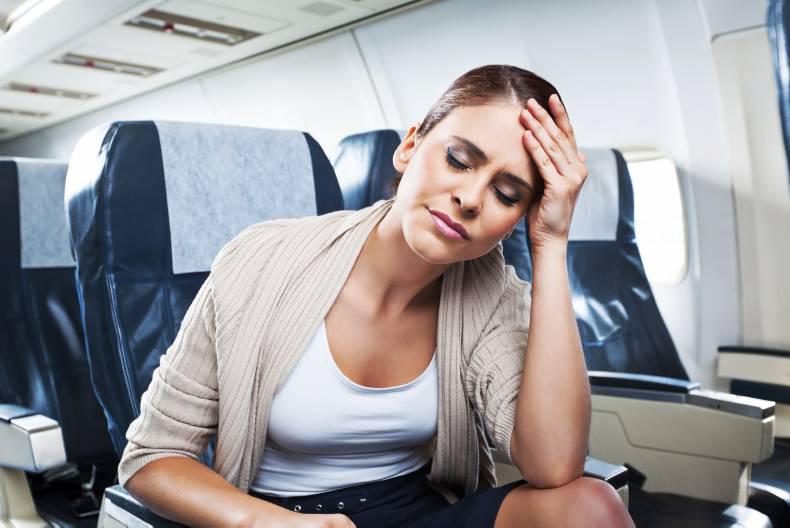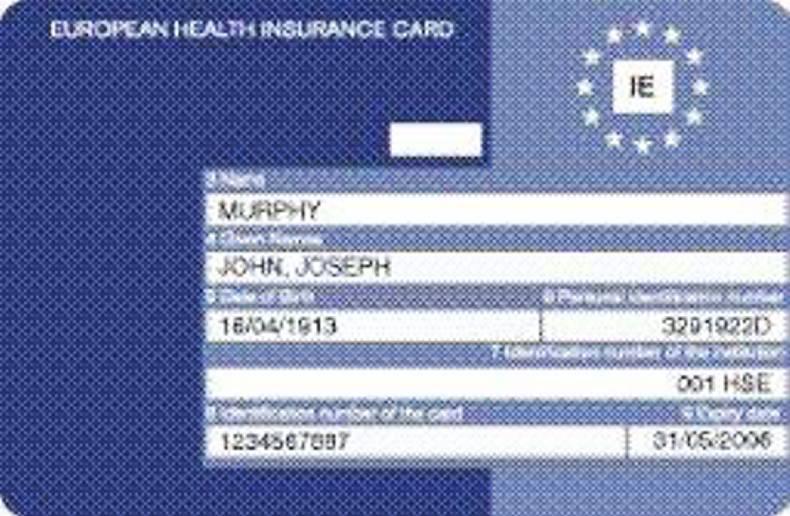It’s the repetitive motion that does it – movements like the swell of the sea or the movement of a car.
Your brain gets confused because it is getting conflicting messages from your eyes, your inner ear balance mechanisms and motion sensors in your body. It doesn’t know whether you are coming or going, literally.
One in three of us are affected by travel sickness and in severe motion situations two out of three people will feel unwell.
This could mean nausea and vomiting, sweating, going pale, getting a headache and even feeling cold – altogether leading to a miserable journey. Throw in the smell of food or petrol or diesel fumes and you may feel even worse.
So is there anything you can take to prevent this happening?
“There are two main preparations for motion sickness that you can buy from a pharmacist without prescription,” says Bernard Duggan of the Irish Pharmacists Union.
“They should be taken before the journey commences because they are less effective if the motion sickness has started. That’s because, after taking the tablet, you might vomit it up so it wouldn’t get into your body to take proper effect.
“Motion sickness can also slow down the movement of substances through your digestive system, so the drug mightn’t get into your body very quickly. For this reason, too, they work best if taken before the journey.”
He names the two most popular travel sickness tablets.
“The first product is Kwells. It should be taken about 30 minutes before travelling and it works for four hours.
“On a longer journey you can take a tablet every six hours, but no more than three can be taken in 24 hours. It is only for adults and children over the age of 10. Side effects can include drowsiness, constipation and dry mouth.”
The other medication is Stugeron: “This should be taken two hours before travel. It works for six to eight hours and can be used by anyone over the age of five. If you suffer from very serious motion sickness you can talk to your GP about prescription medication.”
There are other complementary remedies that you can try also.
“There has been some research done on ginger, which can relieve nausea and vomiting – it would be an old remedy for that.
“Other studies have looked at wearing acupressure bands on the wrist. There isn’t a lot of evidence behind them but some people find them helpful.”
TIPS
Other practical tips to prevent travel sickness include:
• Don’t eat a big meal (spicy/greasy foods) before travelling.• Avoid alcohol.• Sit in the front passenger seat if car motion sickness is your problem, in the middle of the deck on a ship or in the middle of an aeroplane over a wing.• Face forwards as you travel. • Don’t read/do puzzles or watch a film as this will add to sensory confusion. • Breathe fresh air, eg keep car window open/sit on deck.• Chewing gum or sucking sweets or snacking on ginger biscuits may help.• Keep away from others who are experiencing motion sickness – it will only make you feel worse yourself.• Keep still – holding on to a bar/seat in front of you to keep you steady can help.• Close your eyes.• Don’t look at waves/other cars. Look ahead, a little above the horizon, at a fixed place.• If travelling by car, break the journey and have a walk.Tried & tested tip
for sea sickness
Hire a cabin, lie down, breathe deeply and listen to relaxing music via headphones.
With any luck, you’ll sleep and the journey will be over before you know it.
It’s the repetitive motion that does it – movements like the swell of the sea or the movement of a car.
Your brain gets confused because it is getting conflicting messages from your eyes, your inner ear balance mechanisms and motion sensors in your body. It doesn’t know whether you are coming or going, literally.
One in three of us are affected by travel sickness and in severe motion situations two out of three people will feel unwell.
This could mean nausea and vomiting, sweating, going pale, getting a headache and even feeling cold – altogether leading to a miserable journey. Throw in the smell of food or petrol or diesel fumes and you may feel even worse.
So is there anything you can take to prevent this happening?
“There are two main preparations for motion sickness that you can buy from a pharmacist without prescription,” says Bernard Duggan of the Irish Pharmacists Union.
“They should be taken before the journey commences because they are less effective if the motion sickness has started. That’s because, after taking the tablet, you might vomit it up so it wouldn’t get into your body to take proper effect.
“Motion sickness can also slow down the movement of substances through your digestive system, so the drug mightn’t get into your body very quickly. For this reason, too, they work best if taken before the journey.”
He names the two most popular travel sickness tablets.
“The first product is Kwells. It should be taken about 30 minutes before travelling and it works for four hours.
“On a longer journey you can take a tablet every six hours, but no more than three can be taken in 24 hours. It is only for adults and children over the age of 10. Side effects can include drowsiness, constipation and dry mouth.”
The other medication is Stugeron: “This should be taken two hours before travel. It works for six to eight hours and can be used by anyone over the age of five. If you suffer from very serious motion sickness you can talk to your GP about prescription medication.”
There are other complementary remedies that you can try also.
“There has been some research done on ginger, which can relieve nausea and vomiting – it would be an old remedy for that.
“Other studies have looked at wearing acupressure bands on the wrist. There isn’t a lot of evidence behind them but some people find them helpful.”
TIPS
Other practical tips to prevent travel sickness include:
• Don’t eat a big meal (spicy/greasy foods) before travelling.• Avoid alcohol.• Sit in the front passenger seat if car motion sickness is your problem, in the middle of the deck on a ship or in the middle of an aeroplane over a wing.• Face forwards as you travel. • Don’t read/do puzzles or watch a film as this will add to sensory confusion. • Breathe fresh air, eg keep car window open/sit on deck.• Chewing gum or sucking sweets or snacking on ginger biscuits may help.• Keep away from others who are experiencing motion sickness – it will only make you feel worse yourself.• Keep still – holding on to a bar/seat in front of you to keep you steady can help.• Close your eyes.• Don’t look at waves/other cars. Look ahead, a little above the horizon, at a fixed place.• If travelling by car, break the journey and have a walk.Tried & tested tip
for sea sickness
Hire a cabin, lie down, breathe deeply and listen to relaxing music via headphones.
With any luck, you’ll sleep and the journey will be over before you know it.






 This is a subscriber-only article
This is a subscriber-only article






SHARING OPTIONS: